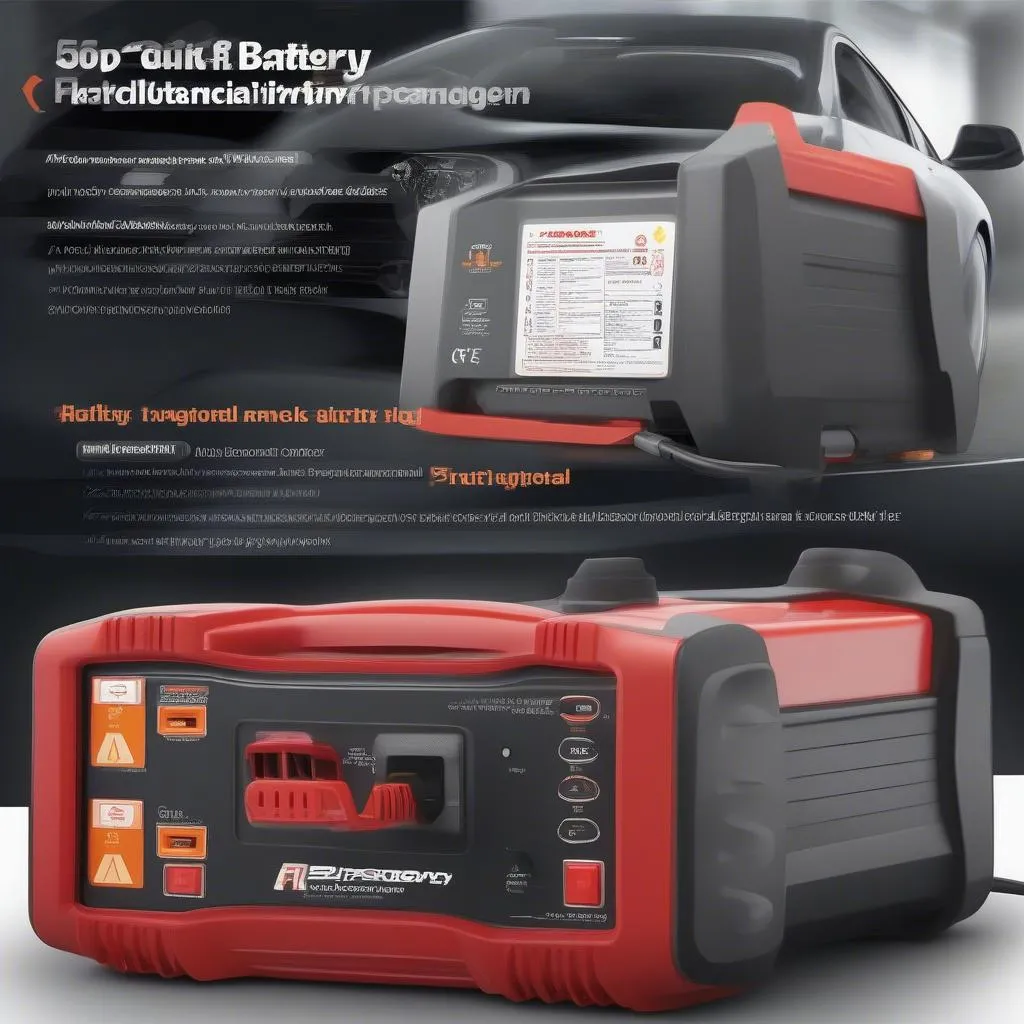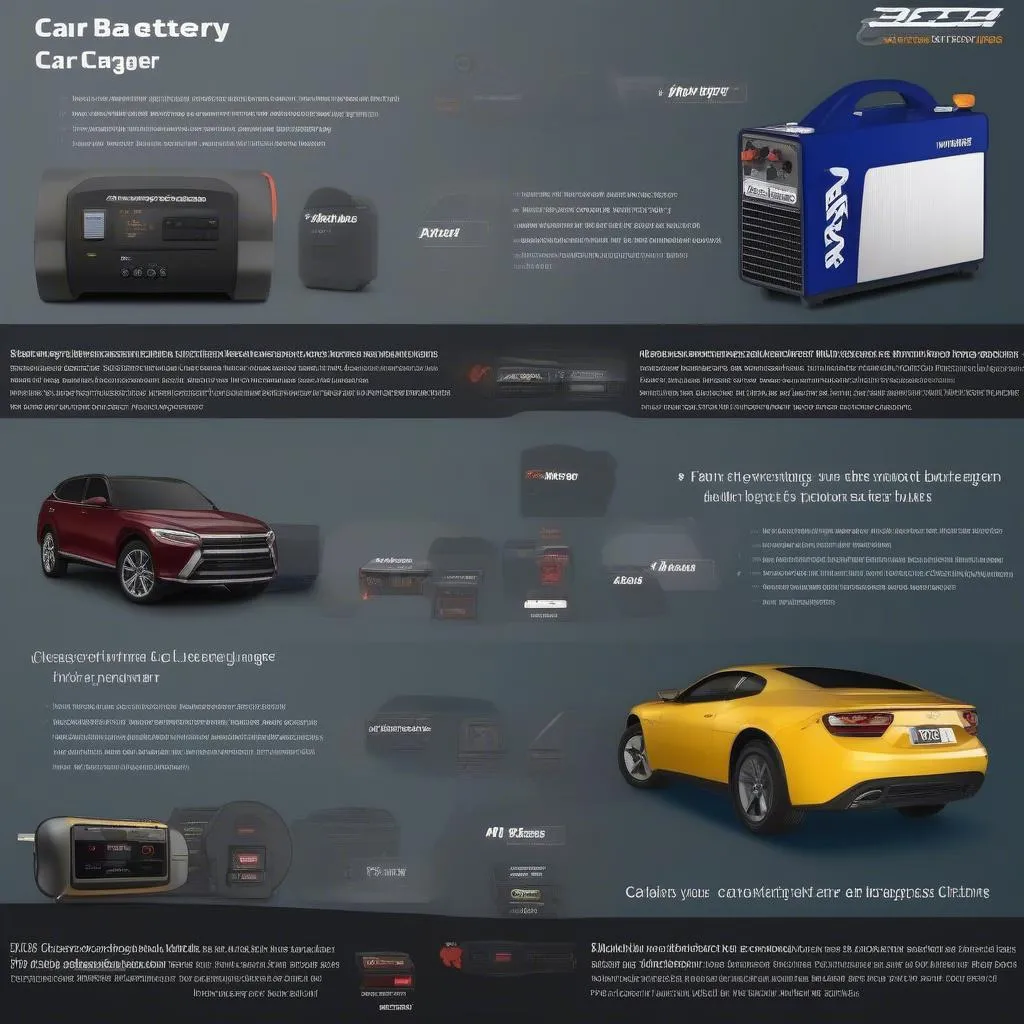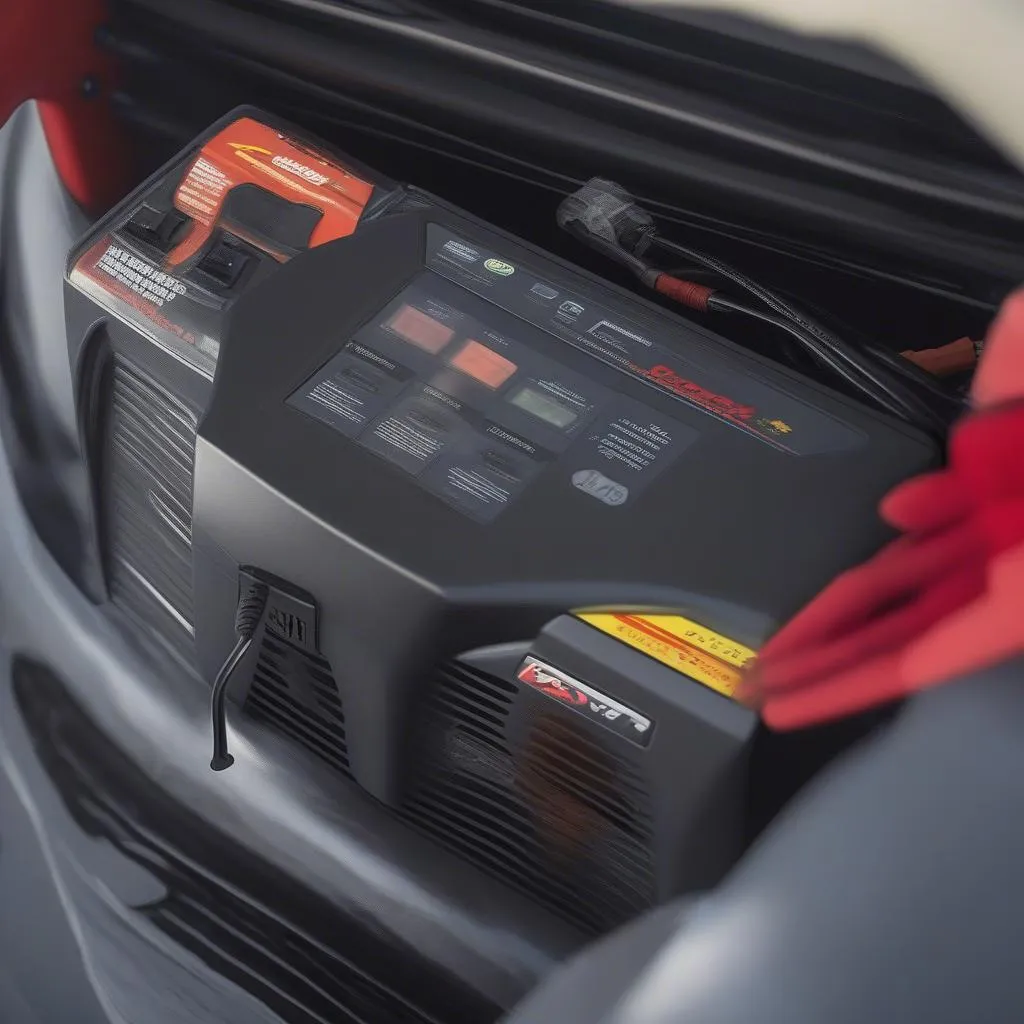Have you ever been stranded on the side of the road with a dead car battery? It’s a frustrating experience that can ruin your day. To avoid this scenario, you need a reliable car battery charger. But with so many options available on the market, how do you choose the best one for your needs?
Why is Choosing the Right Car Battery Charger So Important?
Choosing the right car battery charger is crucial for several reasons:
From a Technician’s Perspective:
- Battery Health: Using an incompatible or low-quality charger can damage your battery, reducing its lifespan and potentially leading to premature failure.
- Vehicle Safety: A faulty charger can pose a risk of electrical shock or fire, compromising your safety and your vehicle’s electrical system.
- Performance: A powerful and efficient charger ensures your battery is fully charged, providing optimal starting power and overall performance.
From a Technical Perspective:
- Charging Current: The charging current (amps) determines the charging speed. Higher amps mean faster charging but can also damage the battery if not used correctly.
- Charging Modes: Different charging modes cater to specific battery types and charging needs, offering features like trickle charging, desulfation, and maintenance mode.
- Battery Compatibility: Not all chargers are compatible with all battery types (lead-acid, AGM, lithium-ion). Choose a charger specifically designed for your battery type.
From an Economical Perspective:
- Cost-Effectiveness: Investing in a high-quality charger can save you money in the long run by extending the life of your battery and preventing costly replacements.
- Reduced Maintenance: A good charger can help you avoid unnecessary trips to a mechanic for battery checks and repairs.
Choosing the Right Car Battery Charger: What to Consider
Now that you understand the importance of selecting the right car battery charger, let’s delve into the key factors to consider:
1. Battery Type:
- Lead-Acid: The most common type of car battery, widely used in gasoline and diesel vehicles.
- AGM (Absorbent Glass Mat): Designed for high-performance vehicles, offering superior vibration resistance and faster charging capabilities.
- Lithium-Ion: Newer technology, offering high energy density, faster charging, and longer lifespan, commonly found in electric vehicles (EVs).
2. Charging Current (Amps):
- Low Amps (2-4A): Suitable for slow trickle charging or maintaining battery health.
- Medium Amps (6-10A): Ideal for most standard car batteries, providing moderate charging speed.
- High Amps (10A or higher): Designed for faster charging, often used for deep-cycle batteries or recovering severely drained batteries.
3. Charging Modes:
- Trickle Charging: A low-current charge that maintains battery health over long periods.
- Desulfation Mode: Helps remove harmful sulfation buildup, restoring battery capacity and extending its lifespan.
- Maintenance Mode: Prevents overcharging and maintains the battery at full charge.
4. Safety Features:
- Reverse Polarity Protection: Prevents damage to the battery and charger if the connections are reversed.
- Overload Protection: Prevents the charger from drawing excessive current, protecting both the charger and the battery.
- Short-Circuit Protection: Prevents damage in case of a short circuit in the charging circuit.
5. Additional Features:
- Digital Display: Provides detailed information about the charging status, voltage, and current.
- Automatic Shutdown: Stops charging when the battery is fully charged, preventing overcharging.
- Battery Testing Function: Allows you to test the battery’s health before charging.
Best Car Battery Chargers in the Market
Now, let’s explore some of the top car battery chargers available:
1.  Best Car Battery Charger **
Best Car Battery Charger **
2.  Top Car Battery Charger Brands **
Top Car Battery Charger Brands **
3.  Best Car Battery Charger Reviews **
Best Car Battery Charger Reviews **
Frequently Asked Questions (FAQs)
Q: How long does it take to charge a car battery?
The charging time depends on the battery’s capacity, the charger’s amperage, and the battery’s state of charge. Generally, a fully discharged battery can take anywhere from 4 to 12 hours to charge with a standard charger.
Q: Can I use a car battery charger on a motorcycle battery?
While some car battery chargers are compatible with motorcycle batteries, it’s essential to check the specifications to ensure the charger’s voltage and amperage are suitable for the motorcycle battery.
Q: What happens if I overcharge a car battery?
Overcharging can lead to battery damage, including electrolyte loss, plate corrosion, and reduced lifespan. It’s crucial to choose a charger with automatic shutdown features to prevent overcharging.
Q: How do I know when my car battery is fully charged?
Most chargers have indicators or displays that show the battery’s charging status. Once the charger reaches the “full” or “maintenance” mode, the battery is fully charged.
Q: Can I leave a car battery charger connected to the battery all the time?
It’s not recommended to leave a charger connected to the battery indefinitely. Some chargers have maintenance mode that helps prevent overcharging, but it’s best to disconnect the charger after the battery is fully charged.
What’s Next?
Understanding the key features of a car battery charger will help you make an informed decision. If you need assistance choosing the best charger for your specific needs or have further questions, feel free to contact us via Whatsapp: +84767531508. Our team of automotive experts is available 24/7 to assist you.
We recommend checking out our other articles on car battery problems, charging Autel X-Star batteries, and car accessories for more valuable insights.
To ensure your car starts every time, invest in a high-quality car battery charger. Your car (and your sanity) will thank you for it!


